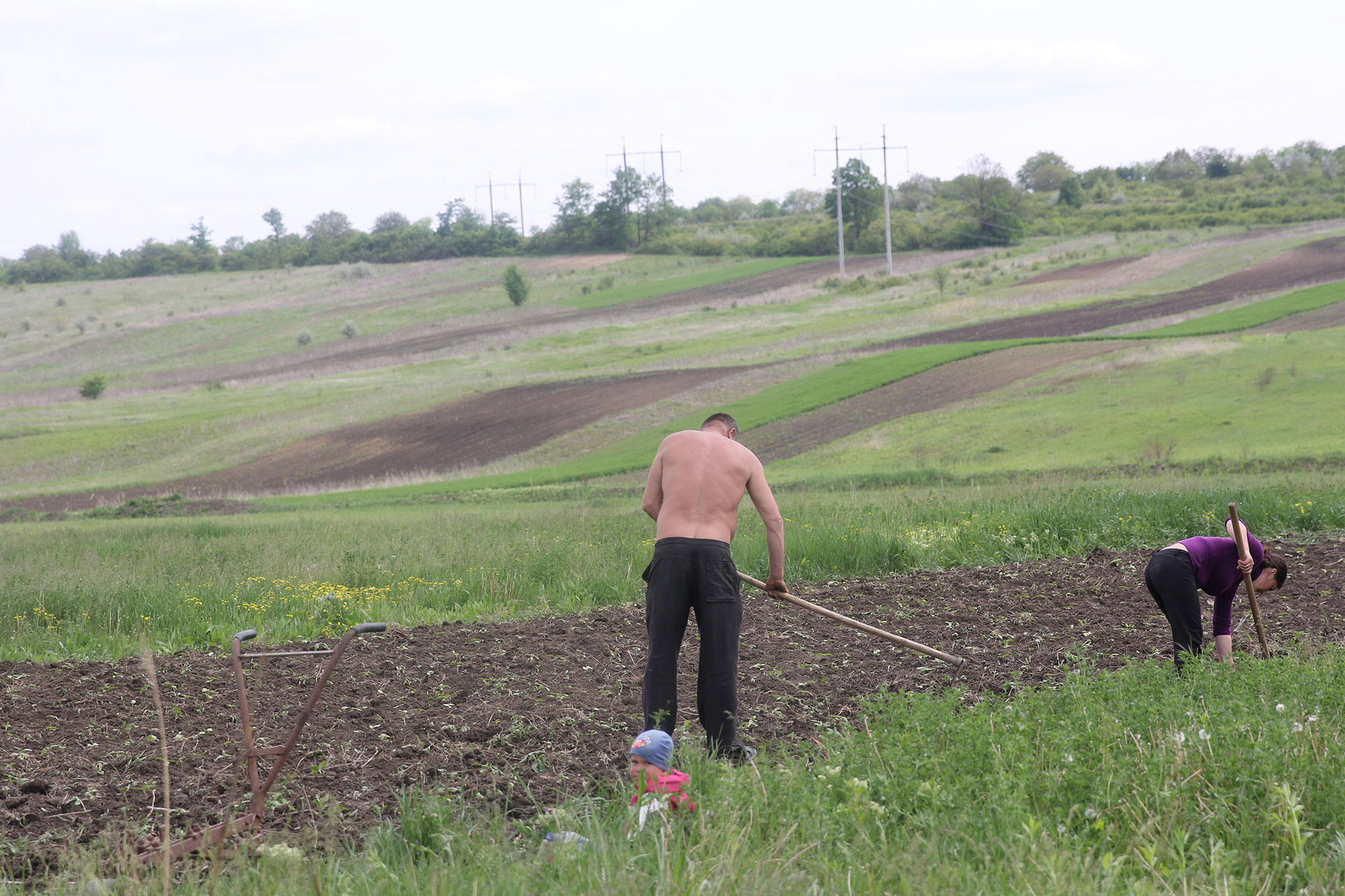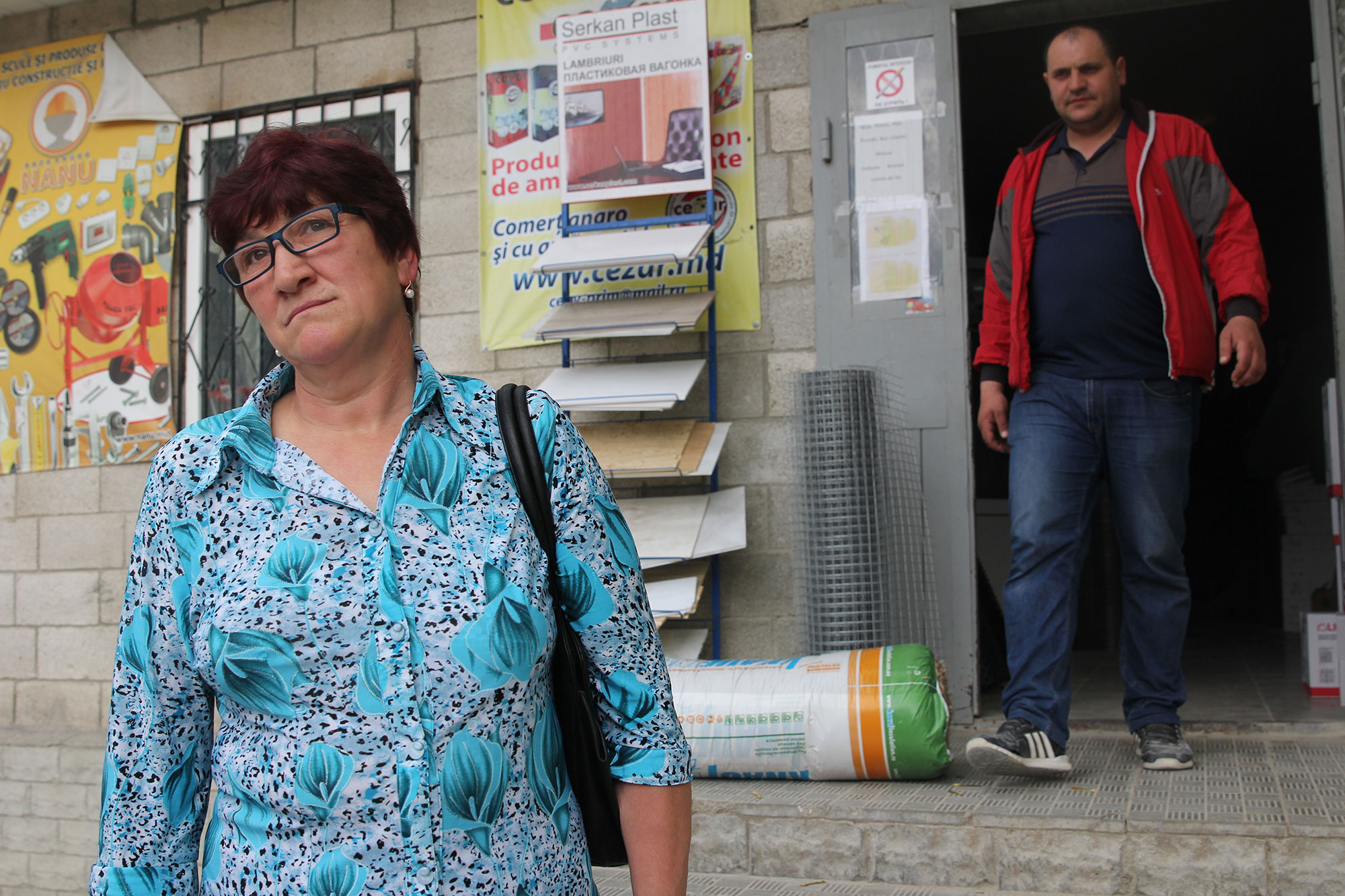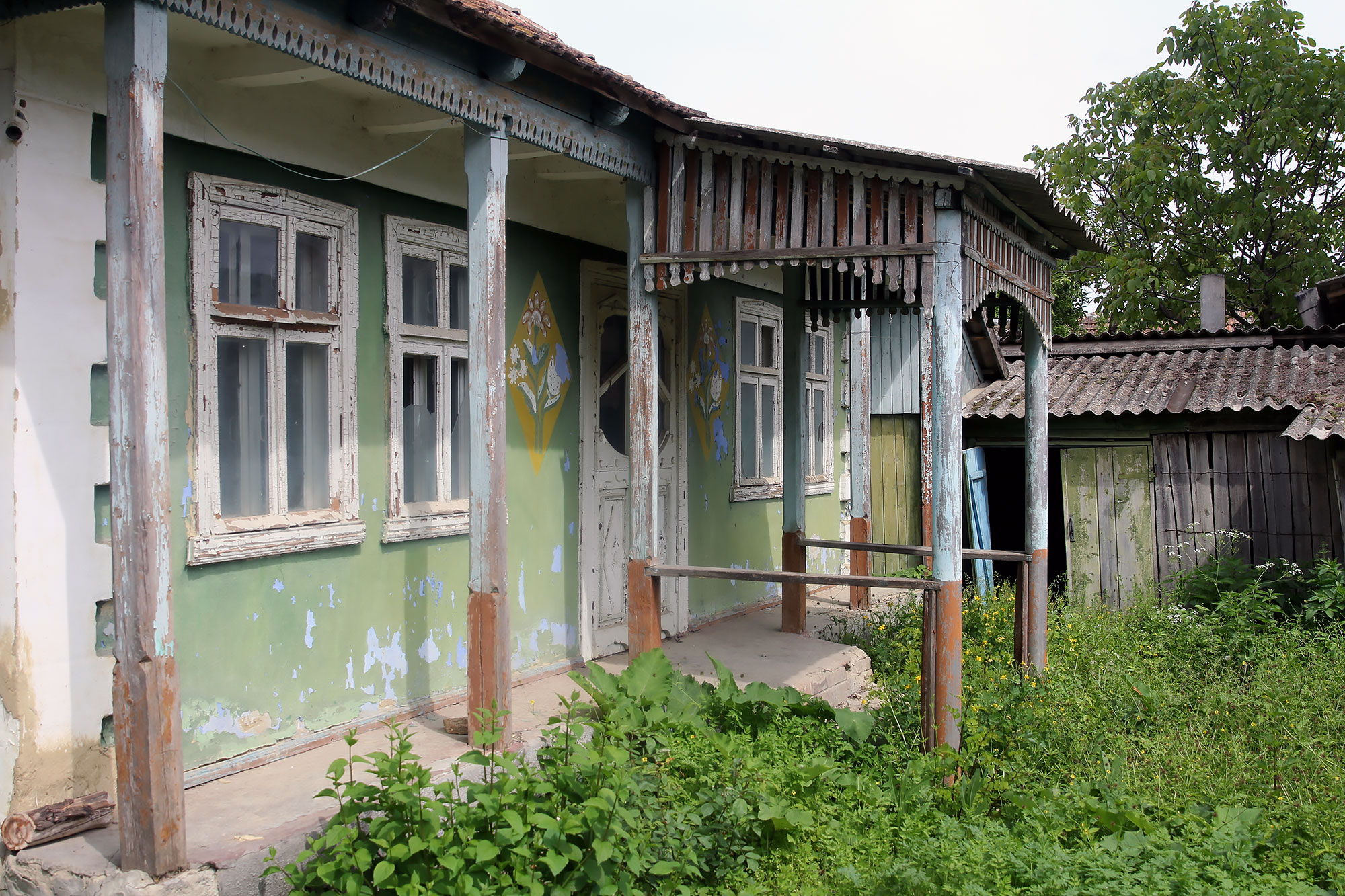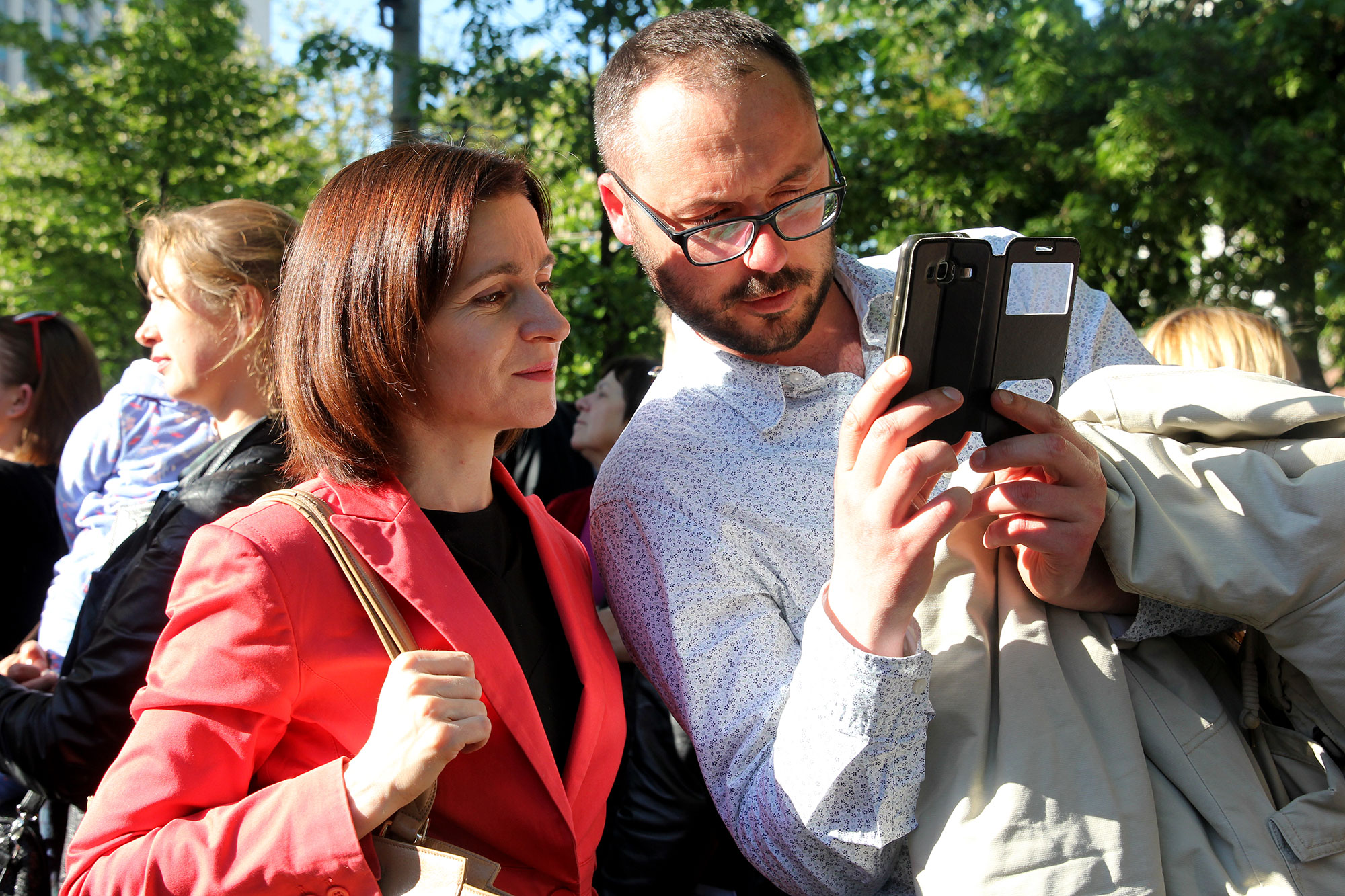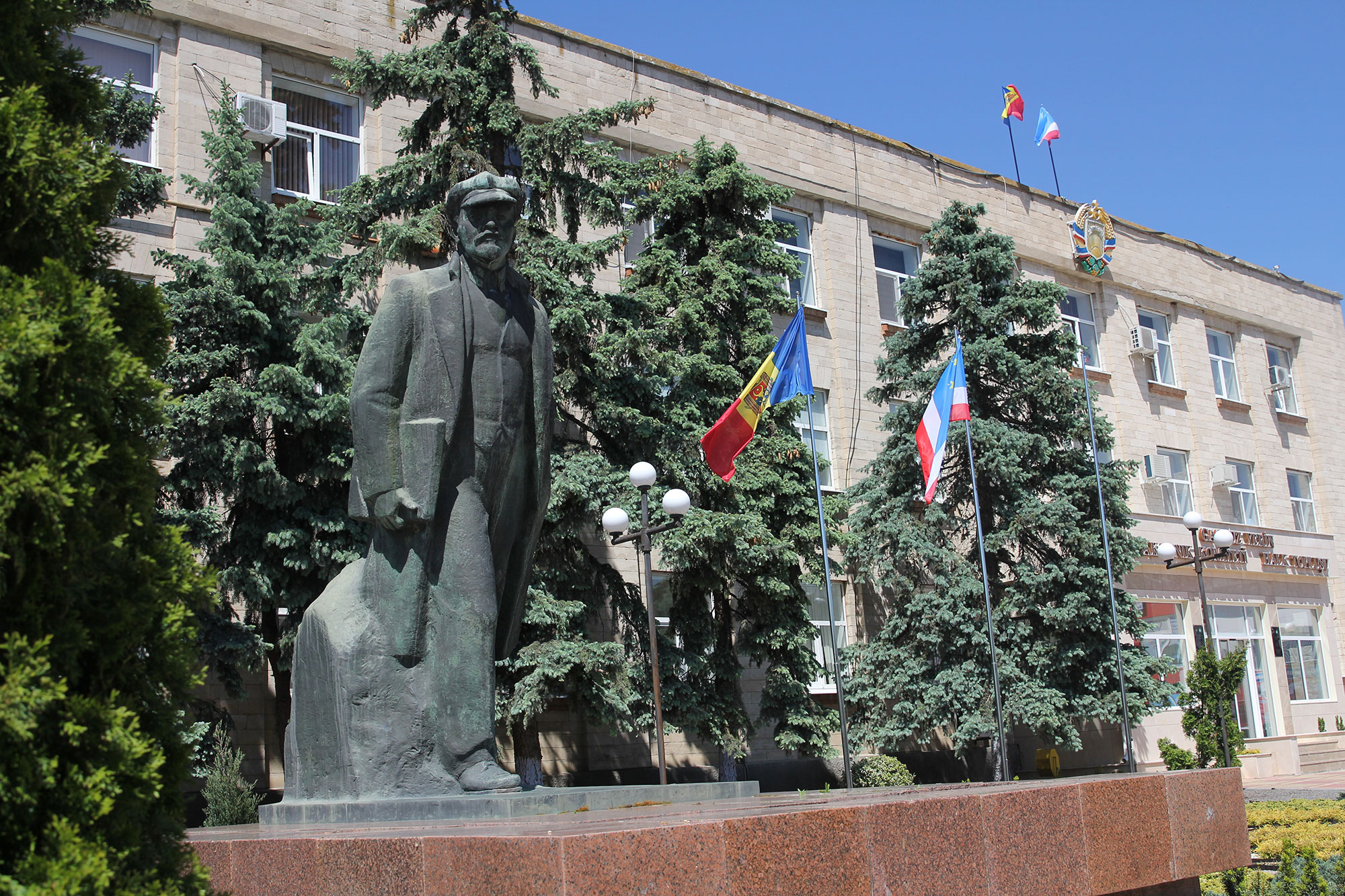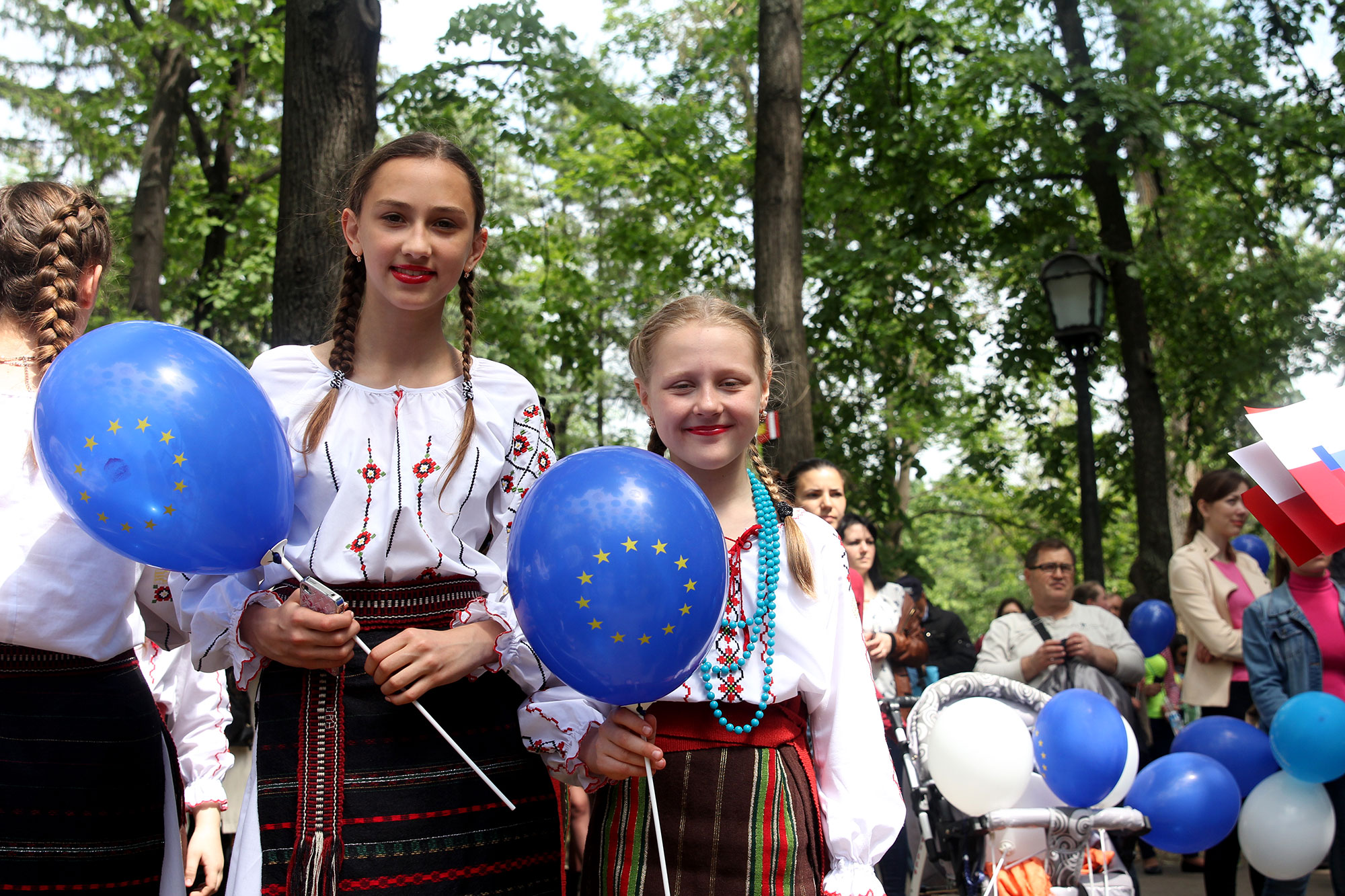MOLDOVA: Corruption, EU-Russia Rivalry Threaten to Swallow it Whole
By Carolyn Cakir
In November 2016, an incredibly divided country voted for its next president. The candidates seemed to represent the dichotomies of the divided nation. On one side, there was an Ivy League-educated woman—a hard working liberal who was pro-European Union and promoted reform. Her opponent was a brash, populist candidate who cast himself as a political outsider, pledging to restore “friendly relations” with Russia and defend “traditional values.”
During the campaign, the female candidate was plagued by false media narratives. These “fake news” stories ranged from the standard political fare to egregious lies.
In the end, she lost and her pro-Russian opponent secured the presidency. A win marred by claims of election fraud and external interference.
This is not the story of Hillary Clinton, Donald Trump and the U.S. election but of the 2016 presidential elections in Moldova and candidates Maia Sandu and Igor Dodon.
Pulled into a Geopolitical Struggle
This scenario may sound familiar to Americans, but there are significant differences between the US election and the one in Moldova.
A small Eastern European country about the size of Maryland, with a total population about 3.5 million, Moldova is sandwiched between Romania and Ukraine near the Black Sea.
Over its history, these lands have been under the control of the Romans, the Ottoman empire, Romania, and for most of the 20th century, Soviet Russians. This probably explains Moldova’s patchwork national identity, culled together from its previous occupiers.
Moldova serves as a microcosm writ small for the problems plaguing other countries. Here, the issues are playing out faster and more intensely, built on a tide of state corruption and foreign influence.
The country is facing internal issues of corruption, expatriation and economic depression. Meanwhile, Moldova is getting pulled into a geopolitical struggle that threatens to swallow the country whole.
'Corruption is Everywhere'
In late May, the mayor of Moldova’s capital, Chisinau, was arrested on corruption charges. Almost simultaneously, Moldova’s pro-European parliament, which is separate from the Moldovan presidency, expelled five Russian diplomats.
Dodon condemned the move, claiming it was done at the orders of the “West,” adding Moldova’s problems stem from European countries backing a series of corrupt governments.
Olga Gurschi is a young mother living in Straseni. She studied languages in University and has travelled around Europe, but chose to stay and live in Moldova. Still, she says she doesn’t like her country’s current political climate.
“Politics is some kind of bad joke right now,” says Gurschi says. “From shops to higher education places, corruption is everywhere.”
Iulian Groza backs this up. As executive director of the independent think tank Institute for European Policies and Reforms, he monitors government reform in Moldova.
“Corruption is the biggest issue for Moldova,” Groza says. “90 percent of the citizens, both those who say they want to be a part of the EU and those who say they are pro-Russia, a majority of society wants to fight corruption.”
Old Style Politics vs. EU Partnership?
Maia Sandu, a 45-year-old former World Bank economist, is still fighting against corruption and Russian meddling in the Moldovan election.
“There is no question about Russia’s involvement in the election,” she says now, claiming that pictures showed proof that Moldovan citizens in Transnistria, a pro-Russian separatist region, were paid to vote for Dodon.
Her opponent Igor Dodon ran on a campaign pledging deeper ties and increased trade with Moscow. In contrast, Sandu and her Action and Solidarity Party focused on fighting poverty, corruption and oligarchs.
Forces supporting Dodon labelled Sandu an anti-religious lesbian who was raising money from Western Embassies and George Soros and would open up the country to hordes of Syrian immigrants. These fabrications were part of a “fake news” campaign to discredit Sandu.
In the end, Dodon won by about 70,000 votes. But six months later, both Russia and the corruption issue remain at the center of Moldovan politics.
There is not a single state institution in this country which can make decisions by itself. Everything is being micromanaged by one person.
—Maia Sandu, former World Bank economist
'A Captured State'
Moldova ranked 123 out of 176 countries on Transparency International’s 2016 Corruption Index, tied with countries like Sierra Leone and Mexico. It scored 30 on a scale of 0 (highly corrupt) to 100 (very clean). The assessment found that all public sector institutions are highly vulnerable to corruption and lack transparency.
Vote buying, the sale of court decisions, mismanagement of public funds and sketchy party financing are frequent practices cited by corruption analysts.
As far back as 2000, the World Bank classified Moldova as “a captured state,” one where private interests influence governance. Moldova’s ruling majority controls prosecutors, the media, anti-corruption agencies, law enforcement and the courts.
“There is not a single state institution in this country which can make decisions by itself,” says Maia Sandu. “Everything is being micromanaged by one person.”
That one person is Vladimir Plahotniuc, a major media mogul and power broker, also the head of the ruling majority Democratic Party.
Political analyst Igor Botan sums him up in four words, “Businessman, politician, philanthrope, oligarch.”
No Official Post, but Plenty of Power
Plahotniuc earned his wealth an executive at Petrom Moldova, a Romanian-owned oil and gas producer, and as the chairman of the country’s leading commercial bank, Victoriabank. His company, General Media Group, has more than a dozen holdings, including the country’s largest broadcasters, Prime and Publika TV.
Plahotniuc has no official post in the government. Even so, he has a toxic political reputation. His nickname Plaha is the Russian word for a wooden block used in executions.
He gained power by cannibalizing his own party, the Democratic Party, then turning on to others, according to Maia Sandu. Despite only winning 19 seats in the last parliamentary election, the Democratic Party now holds 42 seats, a constitutional majority, thanks to Plahotniuc’s political machinations.
Plahotniuc aligns himself and the Democratic Party with the West, outwardly supporting reformation and European integration.
'The Interests of the Elites'
But critics like Maia Sandu call the Democratic Party’s pro-EU stance a façade, and any steps it has taken towards reformation pretense.
“They keep calling themselves pro-European, but what they are doing has nothing to do with EU values,” says Sandu. “Plahotniuc is not pro-EU, he’s pro-Plahotniuc.”
In 2014, Moldova signed an Agreement Association with Brussels. It included a series economic, judicial and financial reforms that Moldova must implement in exchange for cooperation with Europe. As the ruling faction, the Democratic Party has been in charge of passing these reforms in the government.
At IPRE, Iulian Groza monitors and reports on the government’s implementation of European Association Agreement reforms. IPRE’s final report concluded that the government managed to deliver over 60 percent of the laws it had committed to for 2015-2016.
However, according to Groza, there is still a problem with the implementation of these laws—delayed implementation, no implementation and even action that undermines reforms.
“[The government] will report a reform to Brussels [EU headquarters], and, one or two months after that, other laws appear which contract the reform they had reported,” Groza explains. “They may be adopting new laws, but they are limited to the interests of the elites.”
A Willingness to Change Has Its Limits
There is a limit to the political elites’ willingness to change. Perhaps this is because, as Maia Sandu suggests, they see what happened to the powerful and corrupt in Romania after its own transformation.
“Plahotniuc is not stupid,” Sandu says. “He understands that there is no way somebody is going to let him get away unpunished, [if integration] is going to happen. So why would he want to get put in prison?”
A decade earlier, support for European integration was 70-75 percent, according to Igor Botan. Now, it’s only 40 percent, which he says “reflects the disappointment for those who promote it.”
Moldova’s new President Igor Dodon won by tapping into the country’s disillusionment and anger at corruption in the pro-EU government and, at the same time, promoting closer ties to Russia.
Brussels vs. Moscow
“Moldova [has] two centers of attraction, one in Brussels and one in Moscow,” explains Botan. “We pendulate between East and West.”
Moldova is primed to be a microcosm of the struggle between the European Union and Russia happening across Europe right now. It’s one of the flags on the rope in Europe and Russia’s tug of war for influence in the region.
Romanian is the national language, but Russian is the second-most spoken language, and it dominates regions like Gagauzia, Balti, and the separatist state Transnistria.
Two-thirds of Moldovans are of Romanian descent. In fact, many citizens can get a Romanian passport, and therefore an EU passport, if they can prove their heritage. Still, an equal number of Moldovans choose to move to Ukraine or Russia to find work.
Caught Between Two Superpowers
It’s a country caught between two superpowers culturally, financially and politically.
The European Union hopes to shore up Moldova’s borders and promote stability in the region. It hopes that by fighting corruption and increasing quality of life for Moldovan citizens it can beat back Russian aggression in Eastern Europe.
In turn, Russia still wants to keep Moldova within its sphere of influence, according to Igor Botan, because Moldova used to be a part of the Soviet Union. “Also, Russia wants a belt of friends around the EU,” Botan says.
Both the European Union and Russia spend time and money on Moldova, but the mechanisms of their investment are different.
The EU actively invests in development and reform, a bid to move Moldova towards European integration. It recently participated in the renovation of the National Art Museum in Chisinau, restoring a hundred-year-old building to showcase contemporary Moldovan artists and temporary exhibitions.
Russia Can't Outspend the West
Russia prefers to use politics and propaganda to exert influence on the small state. It knows it cannot outspend the West in direct investments, so it maintains its hold through disinformation and payments to the right people.
A recent report by Rise Moldova, an independent investigative journalism organization, found President Dodon’s Socialist Party received at least 30 million lei (about $1.7 million) over the last three years from an offshore account linked to Russia.
After Moldova signed an Association Agreement with Brussels in 2014, Russia placed an embargo on the country’s exports.
Botan calls it a “punishment” for Moldova embracing EU standards. That embargo struck hard at the already poor country’s GDP.
Was the EU Association Agreement Oversold?
Pro-Russian President Igor Dodon ran on a campaign pledging deeper ties and increased trade with Moscow. He said the EU Association Agreement was bad for Moldova’s economy.
Political analysts, like Igor Botan, say Dodon oversold the benefits of turning towards the East.
“Dodon’s rhetoric should have limits, because Russia cannot support Moldova as the EU does,” Botan says. “It can only remove the embargo. Russia will never pay for maintaining Moldova life.”
Russia’s investments are less direct than the European Union’s, but many Moldovans don’t acknowledge this. And the significant financial assistance Moldova receives from the West does nothing to endear the EU to the citizens.
Nostalgia for the Old Soviet Union
Vasili Sizov says Moldova would be better off with ties to Russia. He’s is nostalgic for the time when Moldova was a part of the Soviet Union.
“Soviet times were great,” Sizov says. “Products were very cheap. We had jobs; everyone worked.”
Sizov says Russia can give Moldova more than Europe ever could.
“What did Europe do? They did nothing good,” he says. “They have nothing good in Europe. In Russia, they provide some materials and industry.”
The 76-year-old pensioner lives in Balti, a pro-Russian city two hours north of Chisinau where the Soviet era doesn’t seem so far in the past. Signs in Balti are written in the Roman and Cyrillic alphabet. Soviet-era buildings have carvings of communist icons Karl Marx, Vladimir Lenin and Joseph Stalin.
At the same time, the EU recently funded a project to improve public transportation in Balti.
A Shrinking, Crumbling Capital City
Unfortunately, Moldova is sinking right now.
Walking around the city of Chisinau, it is hard to believe it’s the capital of a European country and not some provincial town. Most of the buildings are run-down. There is little development.
The largest city in Moldova, Chisinau’s estimated population is 723,000, or about the same size as Seattle.
The streets and sidewalks are empty and crumbling. Moldova’s rundown infrastructure is a widespread problem.
Olga Gurschi walks into the center of Straseni every day with her baby in its stroller, a herculean task.
“Right now it is very hard to be a mother, because our roads are not made for our children,” she says. “To get from my home to the center of the city, I end up saying a lot of very ugly words every time, because it’s very complicated to move [the stroller]. It’s very irritating.”
In many parts of the country, villages are emptying, houses are for sale or simply abandoned. Derelict Soviet-era factories and bus stations are a common sight.
Moldova is the poorest country in Europe with the lowest GDP per capita—$1,848 in 2016, according to the World Bank. More than half of its citizens live under the poverty line.
Olga Nikolaevna, 50, sells candy and treats at a stall in the Balti marketplace, where poorer citizens shop for everything they need.
“We have a really hard life,” she says. “I wish it was easier, but we’re not seeing many improvements."
Under the Soviet Union, Nikolaevna worked in a big factory, “Lenin’s Factory” she calls it.
“When the Soviet Union collapsed, a lot of people tried to get rich off the collapse, and we became poor,” she says. “Now we are sitting in these marketplaces, trying to pull our lives together to support our families. Our children left to go all around the world [to work], but we remain here.”
When the Soviet Union collapsed, a lot of people tried to get rich off the collapse, and we became poor. Now we are sitting in these marketplaces, trying to pull our lives together to support our families. Our children left to go all around the world [to work], but we remain here.
—Olga Nikolaevna
Wars of Disinformation
Like Sizov, many Moldovans take the EU’s numerous contributions for granted, because Russia has developed such a robust media presence in Moldova.
Russia wages wars of disinformation against the European Union and pro-EU politicians through its state-run media outlets.
“Russian media propaganda is very much present here because the soil is very fertile,” says Groza. “You have 25 percent of the population who are Russian-speaking. You have another 30 percent who are very much nostalgic for Russia and the Soviet Union.”
Its television stations are widely available in Moldova. So much so that in certain regions, people may not have access to Moldovan state-run channels but still receive Russian-controlled ones.
Russia Controls the Narrative
The European Union has no propaganda machine working to promote its values and positions. Russia controls the narrative.
Russia’s moves in Moldova are as strategic as they are destructive, says Iulian Groza.
“Russia is interested to have [Moldova as] a weak state,” Groza says. “Unstable, fights, division, minorities, conflicts... [it’s] very good for them. Whenever you are so vulnerable, you are very easy to control.”
Russia doesn’t care about democratic reforms in Moldova, because, according to Groza, that sort of development would lead to Moldova “joining the other club,” the EU.
Meanwhile, according to Maia Sandu, Plahotniuc and the political elite want Moldova to be “a buffer zone between the West and East, to play both groups against each other, giving them pretty large freedom to do what they want.”
A game that Groza predicts will end badly for Moldova. “If we continue to be like this pendulum [between the East and West],” he explains, “if you keep swinging a boat, the boat will sink, and that’s it.”
One-Third Live Abroad
People are leaving Moldova. And while, according to Iulian Groza, people have been leaving since the late 90s-early 2000s, they left for different reasons back then. “Now, more and more people are saying, ‘I should leave, because I cannot see any future in my country,’” Groza says.
Roughly a third of Moldovans live abroad. About half of them move to European Union or NATO countries, the other group settle in Russia, Ukraine or Russian allies. Their decision largely depends on their native language and ethnicity. Those who speak Russian go to the East; those who are Romanian move to the EU.
Eugenia Mihai has five children. Two of her daughters live and work in Italy. The other three still in Moldova but maybe not for long, she says.
“Only one child of mine sees his future in this country,” the 59-year-old widow says. My youngest daughter will not leave because she doesn’t want me to be alone. But I have one more child that wants to get a Romanian passport and leave for the EU.”
“We have a saying here, ‘Even if the bread is bad, it will still taste better in my own country,’” Mihai says. “That’s what we think, but today, the young people, they don’t think so.”
Young Moldovans: 'Everything Depends On us'
The exodus of young people is one of Moldova’s biggest challenges, particularly when it comes to taking care of those left behind.
There are around 800,000 pensioners in Moldova, Maia Sandu estimates. The rapidly shrinking working age population is 2 million at best, she says, but there are not exact numbers. Children, who don’t work, round out the total population to around 3.5 million.
With almost half of the people being pensioners or children and a decreasing working population, Sandu says, the economy will soon not be able to support itself, and the government won’t be able to take care of its citizens.
“In a country like Moldova, the public pension system has always been very important,” Sandu says. “People [are] relying on it, so it’s not like [pensioners] have other sources of income.”
“If nothing positive happens in the next two to three years, if there is not a change,” she adds, “[Moldova] is going to be an empty country, a country of pensioners.”
Eugen Surdu is one of the many young people working abroad. The 27-year-old works in Germany at a restaurant. Most of his friends live and work abroad, returning to Moldova for short periods to visit family.
“I think if we were a more developed country, more people would come back from abroad,” he says. “Then we could raise our country up, be more united.”
Surdu thinks the fate of his country rests in the hands of young people like himself.
“Everything depends on us,” he says. “On our will to come back, to build something better, more prosperous, so we could feel more comfortable in our own country.”
“Politicians tend to keep their political agenda focused on geopolitics, because it’s easier to divide society, to attract an electorate. And it’s more difficult for them to come up with solutions.
—Iulian Groza, IPRE
'Still Believe in Democracy'
The kind of development Surdu is talking about, needs to come from the inside, says Iulian Groza.
“Politicians tend to keep their political agenda focused on geopolitics,” Groza said, “because it’s easier to divide society, to attract an electorate. And it’s more difficult for them to come up with solutions.”
Currently, IPRE is working with ethnic minorities in Moldova, a project “to talk to them more about public policies, to encourage them to be more involved and to become a part of the process on a political level.”
“At the same time, try to show to them that it’s not about geopolitical factors,” he said. “It’s not about European integration. It’s in the first place about the issues or the problems that have to be addressed in Moldova.”
As development stalls and the economy flounders, some Moldovans still hold out hope that something might change, might improve their lives.
Though disappointed with the current state of Moldovan politics, Olga Gurschi wants her country to succeed.
“I really like my country,” she says. “I had some possibilities to [live] in other countries, but I choose every time to come back. Because it’s my home.”
“But I would definitely like to see more progress for our children,” she adds. “I really hope for a bright future for my children. If not for us, maybe for them.”
She may have lost the presidential election, but Maia Sandu says she will not give up trying to improve Moldova.
“I ran because we are at a point where it’s extremely important to give a positive signal to people, because otherwise people are leaving,” she says, adding that one good thing came out of the election.
“We saw in Moldova that there is a critical mass of people who still believe in Democracy, despite the disappointments they went through of the last 7 or 8 years” she says. “These people went to vote for Democracy in Moldova.”


